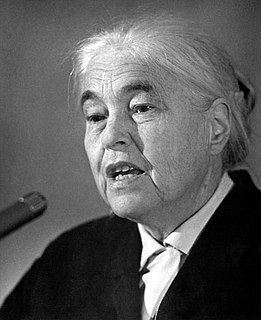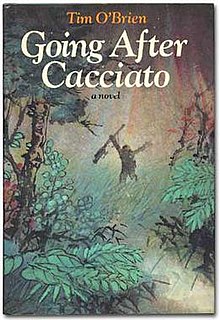A Guide to Berlin may refer to:
- A Guide to Berlin (short story), a 1925 short story by Vladimir Nabokov
- A Guide to Berlin (novel), a 2015 novel by Gail Jones
A Guide to Berlin may refer to:
Bill(s) may refer to:

A short story is a piece of prose fiction that typically can be read in one sitting and focuses on a self-contained incident or series of linked incidents, with the intent of evoking a single effect or mood. The short story is one of the oldest types of literature and has existed in the form of legends, mythic tales, folk tales, fairy tales, fables and anecdotes in various ancient communities across the world. The modern short story developed in the early 19th century.

Jeffrey Kent Eugenides is an American novelist and short story writer. He has written numerous short stories and essays, as well as three novels: The Virgin Suicides (1993), Middlesex (2002), and The Marriage Plot (2011). The Virgin Suicides served as the basis of a feature film, while Middlesex received the 2003 Pulitzer Prize for Fiction in addition to being a finalist for the National Book Critics Circle Award, the International Dublin Literary Award, and France's Prix Médicis.

A novella is a short novel, that is, a narrative prose fiction whose length is shorter than that of most novels, but longer than most short stories. No official definition exists regarding the number of pages or words necessary for a story to be considered a novella or a novel. US-based Writers of America defines novella's word count to be between 17,500 and 40,000 words.
Gut or guts may refer to:
Snow is precipitation in the form of crystalline water ice.
The BSFA Awards are literary awards presented annually since 1970 by the British Science Fiction Association (BSFA) to honour works in the genre of science fiction. Nominees and winners are chosen based on a vote of BSFA members. More recently, members of the Eastercon convention have also been eligible to vote.
A tie-in work is a work of fiction or other product based on a media property such as a film, video game, television series, board game, web site, role-playing game or literary property. Tie-ins are authorized by the owners of the original property, and are a form of cross-promotion used primarily to generate additional income from that property and to promote its visibility.
Trash may refer to:

Raymond Benson is an American author best known for being the author of the James Bond novels from 1997 to 2003. Benson was born in Midland, Texas and graduated from Permian High School in Odessa in 1973. In primary school Benson took an interest in the piano which would later in his life develop into an interest in composing music, mostly for theatrical productions. Benson also took part in drama at school and became the vice president of his high school's drama department, an interest that he would later pursue by directing stage productions in New York City after attending and receiving a degree in Drama Production—Directing from the University of Texas at Austin. Other hobbies include film history and criticism, writing, and designing computer games.

Anna Seghers was a German writer famous for depicting the moral experience of the Second World War. After living in Mexico City (1941–47) and West Berlin (1947-50), Anna Seghers eventually settled in the GDR. The pseudonym Anna Seghers was apparently based on the surname of the Dutch painter and printmaker Hercules Pieterszoon Seghers or Segers.

Going After Cacciato is an anti-war novel written by Tim O'Brien and first published by Delacorte Press in 1978. It won the U.S. National Book Award for Fiction. O'Brien himself says that "Going After Cacciato is a war novel however this is a controversial idea due to the fact that the book is about a soldier going AWOL."

José Eduardo Agualusa Alves da Cunha is an Angolan journalist and writer of Portuguese and Brazilian descent. He studied agronomy and silviculture in Lisbon, Portugal. Currently he resides in the Island of Mozambique, working as a writer and journalist. He also has been working to establish a public library on the island.
Other usually refers to:
James Arthur Moore is an American horror novelist and short story writer.
A composite film is a feature film whose screenplay is composed of two or more distinct stories. More generally, composite structure refers to an aesthetic principle in which the narrative structure relies on contiguity and linking rather than linearity. In a composite text or film, individual pieces are complete within themselves, yet they form a whole work that is greater than the sum of its individual parts.
Sight is visual perception.

Discworld is a comic fantasy book series written by the English author Terry Pratchett, set on the Discworld, a flat planet balanced on the backs of four elephants which in turn stand on the back of a giant turtle. The series began in 1983 with The Colour of Magic and continued until the final novel The Shepherd's Crown, which was published in 2015, following Pratchett's death. The books frequently parody or take inspiration from J. R. R. Tolkien, Robert E. Howard, H. P. Lovecraft, Charles Dickens and William Shakespeare, as well as mythology, folklore and fairy tales, often using them for satirical parallels with cultural, political and scientific issues.
The Train may refer to:

A Guide to Berlin is a 2015 novel by Australian author Gail Jones. With the same name as Vladimir Nabokov's short story A Guide to Berlin, Jones' novel follows the main character, a young Australian woman named Cass, as she travels to Berlin and meets with five other travellers in the city. The six members form a literary group, all inspired at one point in their lives by Nabokov's life and works, and share their personal stories which they call speak-memories. Towards the end of the novel, a moment of violence within the group changes the direction and tone of the story.